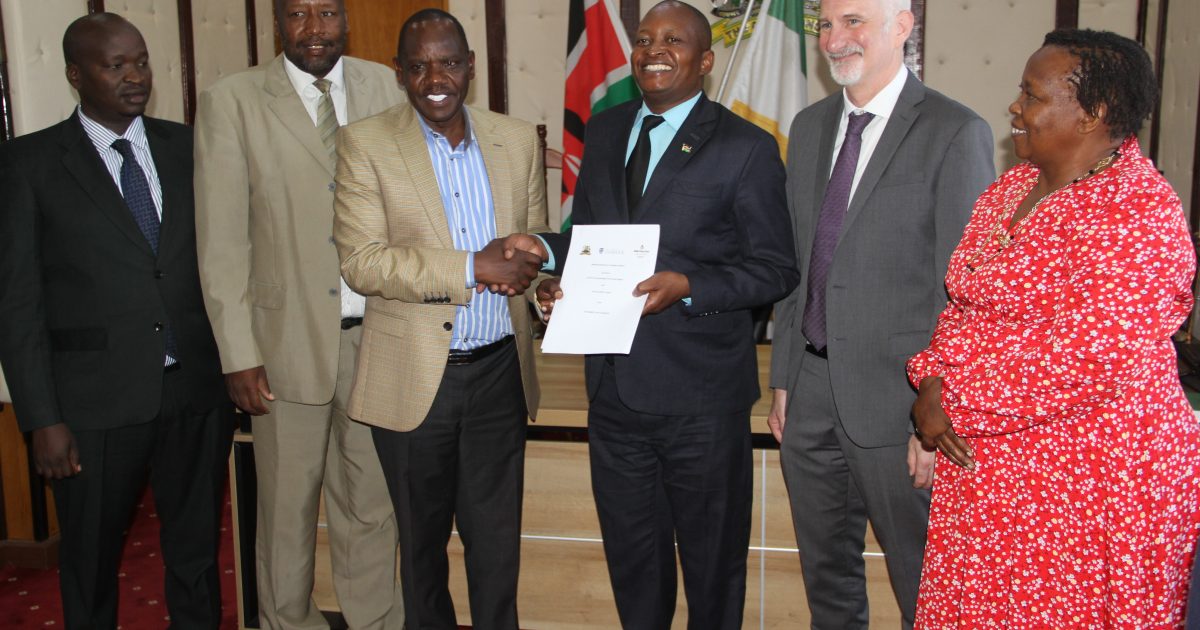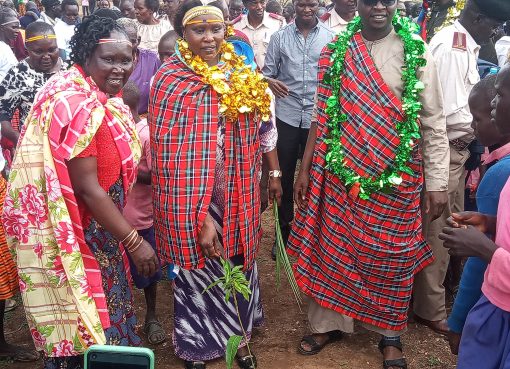MaMa Doing Good in collaboration with the University of Liverpool has signed a Memorandum of Understanding (MoU) with the County Government of Uasin Gishu to train women on adoption of clean cooking technologies to transition from traditional ones that rely solely on firewood.
Uasin Gishu Governor Dr. Jonathan Chelilim said the initiative is life-changing towards fighting climate change and helping rural households embrace healthier cleaner cooking methods through available technologies that do not cause air pollution.
The governor said firewood that is commonly used by women mostly in rural areas emits smoke which poses serious health threats to households and also contributes to air pollution and called on women who were still using firewood or charcoal to transition to clean energy.
“What we are concerned about is climate change and our health given that smoke has done really more harm to our women, especially those using the traditional three stones technique to cook. We are also educating people on climate change that this is the time to save our trees and even plant more,” he added.
MaMa Doing Good is an organisation that implements the vision and programmes of the First Lady Mama Rachel Ruto to catalyse socio-economic transformation in communities.
Mama Doing Good Director of Programmes Daniel Koome said that they, in partnership with the University of Liverpool, Kenya Forest Research Institute (KEFRI) and others support the training of women to transition from fossil fuels to clean technological cooking solutions.
He said they chose Uasin Gishu as a pilot county through Joyful Women Organisation, which has about 2130 women groups in the county.
He said this would enable them to train the women in collaboration with the Ministry of Health through the Community Health Promoters (CHPs) and the economic empowerment officers to be agents on the ground who in turn will transition to Trainers of Trainees (ToTs).
He explained that Clean-Air (Africa) Global Health Research Group, partnering with the Ministry of Health, has been doing research since 2019 to track household energy, air pollution and health indicators through the new Electronic Community Health Information System (eCHIS).
“Clean Air Africa has been doing this since 2019 and now Mama Doing Good wants the programme to start in Uasin Gishu as a convergence zone for the entire project so that it is scaled out to the entire country,” he said.
“We want the transition to work in such a way that a household moves from one tier to the next like from the three stones to the next mode like stove and LPG in that order,” added Koome.
He explained that they needed people to move as the country is trying to ensure universal access to cleaner cooking technologies for everyone by the year 2028.
“We are trying to help move them from one level to another as we transition towards cleaner cooking technologies, as about 2300 women are dying every year due to cardiovascular-related diseases. We are trying to educate them and offer these technologies to be available during these training sessions,” said the director.
He mentioned that they were also working with other stakeholders like Total, Kenya Power and others so that they could offer solutions like electric pressure cookers, induction cookers, LPG and bioethanol at affordable prices to enable women to transition and reduce pollution saying that as they plant trees, they also need to reduce the number of trees they cut for firewood.
Prof. Daniel Pope of Global Public Health and Epidemiology, University of Liverpool, said household air pollution (HAP) is a global public health priority and they were trying to address the challenge through research and technology.
He revealed that about 2300 women die annually due to cardiovascular diseases raising health concerns which calls for proper ways in terms of embracing clean cooking technologies to curb household air pollution and avert deaths.
Prof. Pope is an experienced researcher on the health impacts of HAP from reliance on solid fuel for household energy in lower- and middle-income countries (LMICs) and prevention strategies through clean cooking technologies and fuels.
Health CECM Abraham Serem affirmed that the initiative would be a life-changing experience for women especially during the wet season when firewood is a hard commodity to find.
He said that involving the CHPs in the programme was very important as the more than 2000 CHPs in the county would be able to educate every homestead they covered out of the 304, 000 households to adhere to healthy life practices like clean energy cooking.
“MaMa Doing Good being here is great. Climate action is something all of us need to embrace and we are looking forward to improving our environment by planting trees and not cutting any more. We are looking at these new technologies to help households improve their livelihoods,” said the CECM.
By Ekuwam Sylvester



